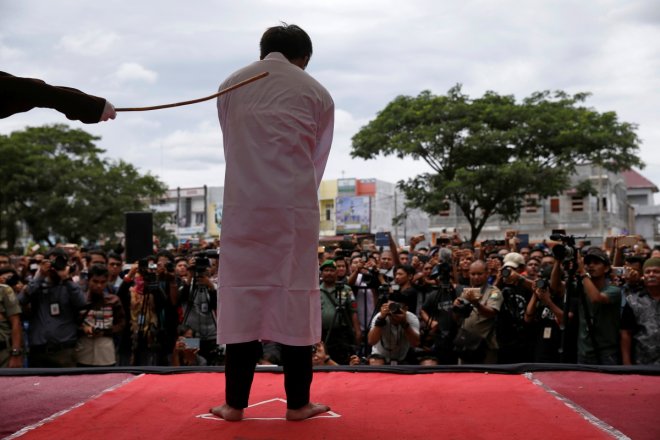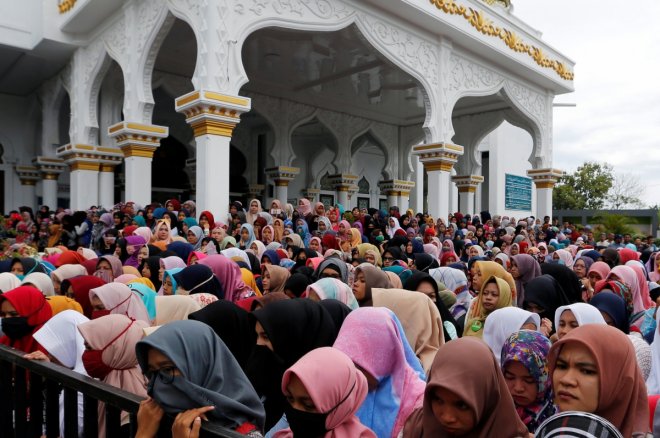
Two men in Indonesia's Aceh province were publicly caned on Tuesday for consensual gay sex amid growing religious intolerance. This punishment intensifies an anti-gay backlash in the world's most populous Muslim country and which rights advocates denounced as "medieval torture." It marked the first application of anti-homosexuality laws introduced in the province in 2014.
Hundreds of people watched the punishment ordered by an Islamic court in Aceh province, the only part of Indonesia that criminalises same-sex relations and that uses Islamic law as its legal code. The crowd shouted insults and cheered, while many of the spectators filmed the caning with mobile phones as a team of five robed and hooded enforcers took turns to inflict the punishment.
Muhammad Taufik, 23, and Muhammad Habibi, 20, were each given 83 lashes of the cane in front of a mosque in the provincial capital, Banda Aceh.
Eight others were also punished under the sharia codes that apply in Aceh. Among them was a heterosexual couple; each received 27 lashes for extramarital relations.


Sarojini Mutia Irfan, a female university student, who witnessed the caning, said that it was a necessary deterrent. "What they have done is like a virus that can harm people's morale," she told AP. "This kind of public punishment is an attempt to stop the spread of the virus to other communities in Aceh."
The punishment was administered by a team of five robed and hooded enforcers, who took turns to inflict the caning. The men stood quietly, their heads down, as spectators heckled them.
The beatings were delivered on the clothed backs of the men and women, some of whom cried out in pain with each stroke. The caning was suspended briefly in some cases if the offender signalled they were in too much pain.

The authorities said the two men were helped off the platform at the end of the lashing. They were free to return to their families after the punishment.
On Monday, 141 men were detained in a police raid on a gay sauna in Jakarta, the capital. Rights groups and activists have raised concern over the persecution of minorities, moral policing and violations of privacy and expression.











